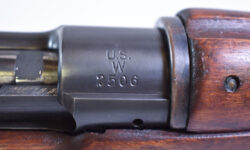Best Oil for Rifle Bolts: How to Keep Your Weapon Running Smooth
Just like any other machine, your rifle needs proper lubrication to keep it running smoothly. If you neglect to oil your rifle bolts, you will likely experience problems with jamming and accuracy. In this blog post, we will discuss the best oil for rifle bolts and how to apply it properly. We’ll also cover some tips on keeping your weapon in top condition!
Which is the Best Oil or Grease for Rifle Bolts?
One of the most important parts of your rifle to keep lubricated is the bolt. The bolt is responsible for chambering rounds and cycling the action. If it becomes gummed up with dirt or dried out, it can cause serious problems. A properly lubricated bolt will ensure that your rifle cycles smoothly and reliably.
There are many different types of grease on the market, but not all of them are created equal. When choosing an oil for your rifle, you need to consider its viscosity, volatility, and ability to withstand high temperatures.
Birchwood Casey RIG Universal Gun Grease
The Birchwood Casey RIG Universal gun Grease is a top-of-the-line cleaning kit that helps protect your firearms from rust and corrosion. With just a single treatment, this amazing grease penetrates almost all metal surfaces to create an impenetrable barrier against rust and corrosion.
Whether you have shotguns, muzzleloaders, handguns, or rifles, the Birchwood Casey RIG Universal gun Grease is ideal for keeping your weapons in pristine condition. Don’t take chances with your valuable firearms collection – trust the experts at Birchwood Casey to keep them looking like new for years to come.
ARCS Self Defense Spartan Tactical Gun Grease
If you’re looking for a high-performance gun grease that will lubricate and protect your firearm, the ARCS Self Defense Spartan Tactical Gun Grease is perfect for you. This grease is designed for extreme conditions, so it can decrease friction and protect against rust and corrosion. It also eliminates gun malfunctions under the harshest conditions, which is vital for maintaining firearm reliability.
The Spartan Tactical Grease is perfect for all types of firearms, whether it’s a shotgun, pistol, or rifle. So if you’re looking for a grease that will keep your gun running smoothly and reliably in any situation, the Spartan Tactical Gun Grease is the ideal choice.
Birchwood Casey Renewalube Bio Firearm Grease
Looking for a reliable, high-performance grease for your firearms? Look no further than Birchwood Casey Renewalube Bio Firearm Grease. This USDA Certified product is an outstanding lubricant that displaces moisture and prevents corrosion. It also has a very high flash point, which means it can operate at cooler temperatures than traditional oils.
So whether you’re shooting in the hottest conditions or protecting your weapon in storage, Renewalube Bio Firearm Grease is up to the task.
Should you put grease on bolts?
If you’re wondering whether or not to put grease on bolts, the answer is yes. Grease can help prevent rust and corrosion, and it can also make it easier to remove the bolt later on if necessary. Just be sure not to use too much, as this can attract dirt and debris. A little goes a long way when it comes to grease, so start with a small amount and add more as needed.
Should I oil my rifle bolt?
If you have a bolt-rifle, it is important to remember to lubricate the bolt regularly. A good rule of thumb is to lubricate the bolt with gun grease after every ten shots. This will help keep your rifle in good working order and prevent any jams or misfires.
If you are unsure about how to oil your rifle bolt, consult the owner’s manual or ask a qualified gunsmith for assistance. With proper care and maintenance, your rifle will provide years of enjoyment and service.
How do you lubricate a bolt?
You’ll need some lubricant and a brush. Apply the lubricant to the bolt with the brush. Make sure to get it into all of the threads. Then, use a cloth to wipe off any excess lubricant. Now your bolt should be good to go!
If you’re having trouble getting the bolt started, try using a hammer to lightly tap it into place. Once it’s started, you should be able to finish screwing it in by hand. Be careful not to over-tighten the bolt, or you may damage the threads.
Should bolts be lubricated before torquing?
This is a controversial topic in the bolting world. Some say that lubricating bolts before torquing can help prevent galling, while others believe it can cause issues with the torque-tension relationship. The truth is, there are pros and cons to both approaches.
Lubricating bolts before torquing can help to prevent galling. Galling is when two surfaces rub together and cause damage. This can happen when two metal surfaces come into contact with each other without any lubrication. Lubricating bolts before torquing can help to reduce the risk of galling by providing a barrier between the bolt and the nut.
However, some believe that lubricating bolts before torquing can actually cause problems with the torque-tension relationship. This is because lubrication can reduce the friction between the bolt and the nut, which can lead to inaccurate torque readings. Inaccurate torque readings can then lead to problems with the joint, such as bolt slippage or joint failure.
The best way to determine whether or not you should lubricate bolts before torquing is to consult your bolting manufacturer or engineer. They will be able to advise you on the best course of action for your particular application.
So, there you have it! Those are some of the pros and cons of lubricating bolts before torquing. As always, if you have any questions, please feel free to contact us at anytime.
Does lubrication affect bolt torque how?
Lubrication can affect bolt torque in a few ways. The most common is that it can reduce friction between the threads, which allows the bolt to be tightened more before it starts to bind. Lubricant can also act as a sealant, preventing moisture and other contaminants from entering the joint and preventing rusting or corrosion. Finally, some lubricants contain additives that can increase the coefficient of friction, which can help prevent loosening due to vibration or thermal cycling.
While lubrication generally improves bolting performance, there are a few things to watch out for. First, using too much lubricant can actually cause an increase in friction, making it harder to achieve the proper torque. Second, certain types of lubricants (such as oils) can migrate away from the joint, leaving it unprotected. This is why many bolting experts recommend using a dry film lubricant when possible.





